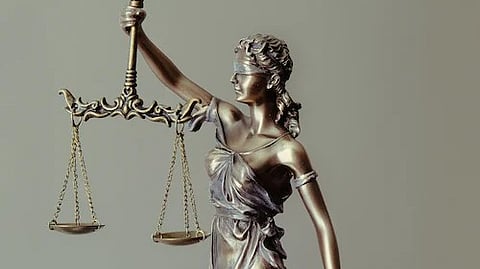
- Home
- NewsGram USA
- India
- न्यूजग्राम
- World
- Politics
- Entertainment
- Culture
- Lifestyle
- Economy
- Sports
- Sp. Coverage
- Misc.
- NewsGram Exclusive
- Jobs / Internships

The Centre on Wednesday submitted before a 7-judge Constitution Bench, headed by CJI D.Y., Chandrachud that the immunity given to lawmakers should not protect them from criminal prosecution for accepting bribes to make a speech or vote in a particular manner in the Parliament or state legislatures.
"The offence of bribery is complete when I offer money to a member of Parliament/Assembly and he accepts. Whether he performs the part of his bargain inside the House or not – has nothing to do with the criminality part," argued Solicitor General Tushar Mehta, appearing for the Centre.
He added that the performance part of the bargain in terms of giving vote or speech is not relevant as the offence is committed outside the House.
At this, CJI Chanrachud remarked: "Even on the question of immunity, there is now fair degree of commonality of understanding, we would like you to assist the court," adding that the issue of immunity when there is criminality attached in lawmakers action is still required to be determined.
The bench, also comprising Justices A.S. Bopanna, M.M. Sundresh, P.S. Narasimha, J.B. Pardiwala, Sanjay Kumar, and Manoj Misra, is reconsidering a judgment of the apex court granting immunity to legislators from criminal prosecution with regards to their speech and votes in the House.
The top court, in its 1998 judgment in P.V. Narasimha Rao versus CBI case, had held that the parliamentarians, against the backdrop of Article 105 of the Constitution, enjoy immunity against criminal prosecution in respect of anything said or any vote given in Parliament.
Similar immunity is conferred by Article 194(2) on Members of the State Legislatures.
In 2019, a 3-judge bench headed by then Chief Justice of India Ranjan Gogoi referred the matter for consideration to a larger bench having regard to the "wide ramification of the question that has arisen" after Jharkhand Mukti Morcha member Sita Soren approached the Supreme Court in 2014 seeking nullification of criminal charges instituted against her for allegedly accepting a bribe to vote in favour of a particular candidate in the Rajya Sabha elections of 2012.
Recently, the Supreme Court had referred the matter to a larger 7-judge Constitution Bench saying that the object of Article 105 and 194 is clearly not to set apart the members of the legislature as persons who wield higher privileges in terms of immunity from the application of the general criminal law of the land which citizens of the land do not possess.
(IANS/SR)
